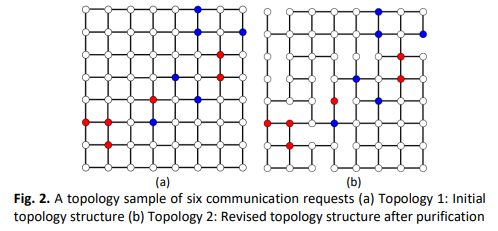Parameter Tuning for Genetic Algorithm Applied to Quantum Routing with Multiple Communication Requests Across Two Different Topologies
DOI:
https://doi.org/10.37934/ard.123.1.158169Keywords:
Quantum internet, entanglement, quantum routing, capacity allocation scheduling, progressive filling, genetic algorithm, parameter tuningAbstract
The quantum internet facilitates communication between quantum devices, making its development essential for advancing quantum technologies. However, realizing a fully functional quantum internet requires overcoming several challenges, including establishing efficient routing mechanisms to ensure effective communication. This study proposes a capacity allocation scheduling scheme based on a Genetic Algorithm (GA) to address the issue of non-uniform edge capacity utilization within a practical routing process. However, it is essential to note that the performance of the GA scheduling scheme is influenced by its control parameters, highlighting the need for parameter tuning. In this paper, we conducted simulations to examine how epochs and population sizes impact the GA scheduling performance, specifically in maximizing average capacity utilization and weighted throughput . The configurations were simulated under six and ten communication requests across two topology structures to assess their response to variations in problem characteristics. The simulation results were then compared with an existing capacity allocation scheduling method, Progressive Filling (PF). Our findings reveal that GA outperforms PF in all scenarios and topology structures. Additionally, we deduce that 30 epochs and a population size of 50 are adequate for optimizing average capacity utilization and weighted throughput .
Downloads























